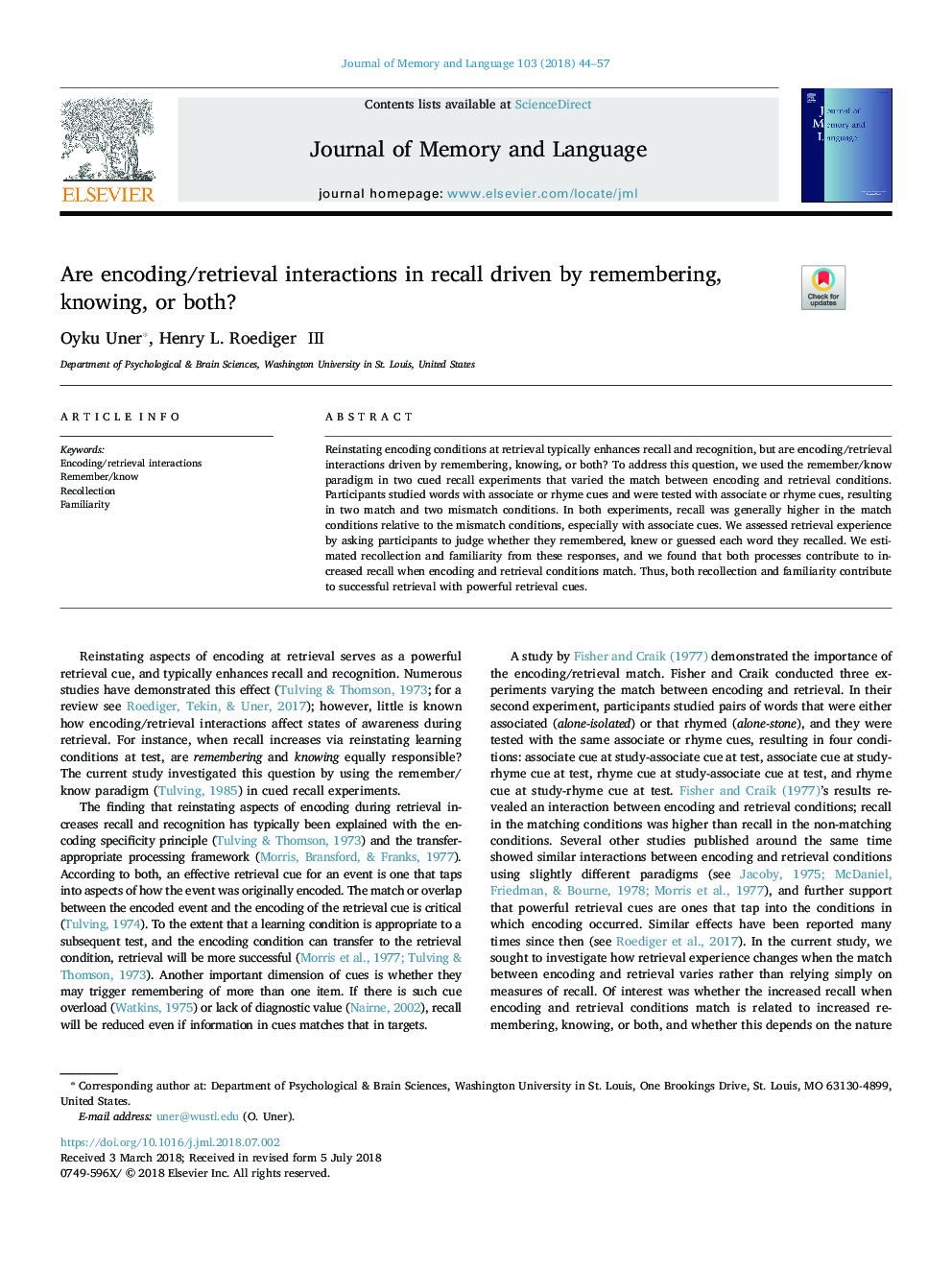| Article ID | Journal | Published Year | Pages | File Type |
|---|---|---|---|---|
| 7296748 | Journal of Memory and Language | 2018 | 14 Pages |
Abstract
Reinstating encoding conditions at retrieval typically enhances recall and recognition, but are encoding/retrieval interactions driven by remembering, knowing, or both? To address this question, we used the remember/know paradigm in two cued recall experiments that varied the match between encoding and retrieval conditions. Participants studied words with associate or rhyme cues and were tested with associate or rhyme cues, resulting in two match and two mismatch conditions. In both experiments, recall was generally higher in the match conditions relative to the mismatch conditions, especially with associate cues. We assessed retrieval experience by asking participants to judge whether they remembered, knew or guessed each word they recalled. We estimated recollection and familiarity from these responses, and we found that both processes contribute to increased recall when encoding and retrieval conditions match. Thus, both recollection and familiarity contribute to successful retrieval with powerful retrieval cues.
Keywords
Related Topics
Life Sciences
Neuroscience
Cognitive Neuroscience
Authors
Oyku Uner, Henry L. III,
